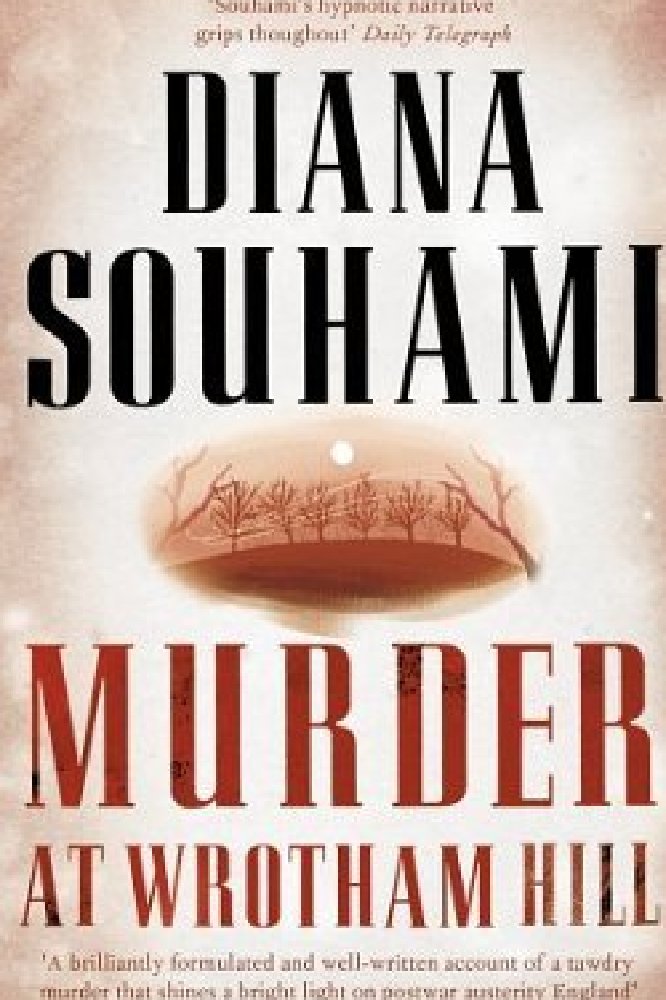
Murder at Wrotham HIll
In Murder at Wrotham Hill a hitchhiker gets strangled before dawn on a wet October morning on the A12 in Kent in 1946. She was Dagmar Petrzywalski, 48, a virgin, hardworking, honest. She lived alone in a makeshift hut on a greenbelt estate after being bombed out of her London flat in the Blitz. She was trying to get to Woking to see her brother. Her killer, Harold Hagger, was a small-time crook with a string of convictions a couple of them for assault. They’re at the core of the story but the strands spread out to link with those concerned with solving the crime, deciding the punishment, hanging the criminal, then spread wider still to the war, England in the 1940s and a fractured society trying to rebuild.
Why did you decide to set the book in 1946?
It was an interesting time in the social history of this country. The war was over - 70 million people were killed in it worldwide. There was a need to start again, yet human character remained unchanged. It was the beginning of the Welfare State - education for all, a health service for all, but optimism was countered by real austerity. The austerity we have now is nothing compared to then. Also the 1940s were my childhood and I wanted to revisit those early years of ration books, pea soup fogs, dried bananas, unheated houses and make do and mend.
The book features a lot of famous names such as Fabian of the Yard, so how much research did you need to put into these characters for the book?
It’s a true story so I depended on research evidence. All the main characters worked in the `industry’ of killing and wrote autobiographies - except for the murderer, but his prison records are detailed. Fabian was the most famous detective of the time. He starred in one of the first TV celebrity shows, Fabian of the Yard. Keith Simpson the pathologist, a larky man, called his autobiography Forty Years of Murder. I said to my editor I thought the weirdest character in the book was Hagger’s executioner Albert Pierrepoint. My editor thought Mrs Pierrepoint was weirder. Albert never told her what his job was. He’d say `I won’t be home for a few days’ then go off and hang a few folk. I also found a great deal of information at the Public Record Office at Kew. And I was much helped by Martin Hagger, a keen genealogist and a distant relative of the murderer.
What is the appeal of a good murder mystery for you and the reader?
My hope was to subvert the genre of crime writing - the recipe of a corpse, a detective, a series of clues then the baddy led away in handcuffs. I was more interested in the randomness of evil, the crudeness of justice, the role of the state when it comes to killing. But whatever the underpinning concept or intention quality writing and convincing characters make for good books.
You have won prizes for your work such as the Whitbread Biography award for Selkirk's Island, so how does it make you feel to have such critical acclaim for your books?
Of course it’s nice to win prizes. You can tell your mother, and publishers like to print the news on book jackets. But praise is a bit like money and sex: there’s never quite enough of it. I dislike the competitive edge prizes bring. I want to think I’ve done well but I don’t ever quite believe I have. And I’m not alone as a writer in better remembering the scathing comments.
When did you first know that you wanted to be a writer?
In my teens. When it was quite clear no one understood me, that I was more or less unemployable and that I needed to do something creative in order to have an identity.
Who do you most like to read?
I have an abiding love for the poems of Cavafy and Tagore, the novels of Jean Rhys, Samuel Beckett and of course most of P.L. Travers Mary Poppins. I’ve just read Al Alvarez Pondlife and enjoyed it very much. But ask me tomorrow and I’ll give you a different answer.
What advice can you give to aspiring writers wanting to write a who done it?
Forget the whodunnit. Don’t be formulaic. Write from the heart. Leave out the dull bits. Leave out the beautiful prose. Get a convincing character, a haunting idea. Make sure every sentence rings true.
If you could have dinner with any author who would it be?
J.M. Coetzee at El Celler de Can Roca in Girona. I think there’s a year-long waiting list to eat there and he wouldn’t deign to make conversation with me so I could concentrate on the food which is reputed to be out of this world.
What is next for you?
I’m working on a novel at the moment. I’m late with it of course. After that I expect writer’s block and penury.

